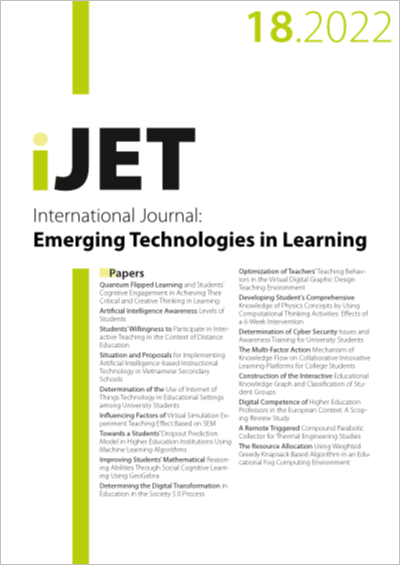Digital Competence of Higher Education Professors in the European Context
A Scoping Review Study
DOI:
https://doi.org/10.3991/ijet.v17i18.31395Keywords:
digital competence, higher education, information and communication technologies, DigCompEduAbstract
The aim of this article is to map the current state of knowledge on the digital competences of higher education professors in the European context through a scoping review. The initial search in resulted in 1,568 publications, which, after applying the selection criteria, resulted in the inclusion of 14 publications. The content analysis showed that the digital tools made available by the intuitions are widely known by the professors, although they have little use. A broad use of the LMS was evidenced, but more specifically to administrative activities than to activities connected with the teaching and learning process. There was also a positive relationship between the level of digital competences and the pedagogical approach adopted by professors (focus on the construction of knowledge by the students, development of open education resources) as well as the participation in research projects. Teachers’ training was pointed out as a relevant topic and the literature analysed referred that this should be preceded by a rigorous analysis of the professors’ digital competence levels so that this process can be carried out in the most personalized way possible.
Downloads
Published
How to Cite
Issue
Section
License
Copyright (c) 2022 Cassio Santos, Neuza Pedro, João Mattar

This work is licensed under a Creative Commons Attribution 4.0 International License.



